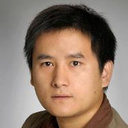Anti-tumour effects of polysaccharide extracted from Acanthopanax senticosus and cell-mediated immunity.
Słowa kluczowe
Abstrakcyjny
Acanthopanax senticosus, also known as Siberian ginseng, is widely distributed throughout northern Asia and used in traditional Chinese medicine; it has been reported to prevent a number of diseases. However, the association between the antitumour and immunostimulatory activities of polysaccharide extracted from A. senticosus (ASPS) remains to be elucidated. The aim of the present study was to investigate the anti-tumour and immunomodulatory effects of polysaccharide extracted from ASPS on Crocker sarcoma S180, hepatic carcinoma H22 and uterine cervical carcinoma U14 tumour cell lines implanted in mice. High performance liquid chromatography, gas chromatography and infrared spectroscopy were used to analyse the monosaccharide composition of ASPS. The monosaccharide composition of ASPS (Arabic candy: Xylose: Glucose: Mannose) was 7.1:22.3:7.6:1.0. On day 0, female Kunming mice, were injected subcutaneously with 1×108 tumour cells in 0.2 ml. The inoculated mice were subsequently divided into five groups (10 mice/group) as follows: Model group, treated with normal saline; positive control group, treated with 30 mg/kg cyclophosphamide (CTX); and three treatment groups, treated with 200, 100 or 50 mg/kg ASPS. Non-inoculated mice were divided into the normal group, which was treated with normal saline, and the negative control group, which was treated with 200 mg/kg ASPS (n=10/group). CTX and ASPS were administered intragastrically once daily for 10 days. All mice were sacrificed on day 11. ASPS was observed to have an inhibitory effect on the growth of S180, H22 and U14 cells in solid and ascites tumour-bearing mice. Serum interleukin (IL)-2 and IL-12 levels were significantly increased in S180 solid tumour-bearing mice treated with 200 or 100 mg/kg ASPS compared with mice in the normal, control and model groups (P<0.05), whereas serum IL-2 and IL-12 levels were significantly decreased in the cyclophosphamide treatment group compared with the normal, control and model groups (P<0.05). No significant difference in serum levels of tumour necrosis factor-α level was observed between any groups. In S180 and U14 solid tumour-bearing mice, no significant differences in serum levels of interferon (INF)-γ level in were observed between groups; however, in H22 solid tumour-bearing mice, treatment with ASPS significantly increased serum INF-γ compared with the positive control group (P<0.05). The results may provide a basis for the potential application of ASPS in clinical treatment for cancer.



